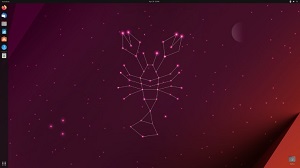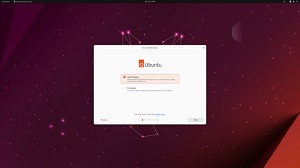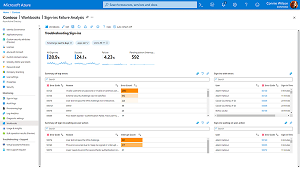News
Ubuntu 23.04 'Lunar Lobster' Released
On April 20, 2023, Canonical, the folks behind Ubuntu, released version 23.04 of their widely popular Linux distribution, Ubuntu.
Going through the release notes and a press release, a few things caught my eye in this release. GNOME, its desktop GUI, has been updated to include the latest features in its GNOME 44, Ubuntu has made improvements to its ability to run games using Steam, and, of course, Ubuntu has updated many other applications, toolchains and subsystems in this release. The two things that really caught my attention were the new desktop installer and its support for Azure Active Directory. In this article I will be focusing on these two features.
 [Click on image for larger view.]
[Click on image for larger view.]
I have always found Ubuntu easy to install and will be interested to see if I notice any changes now that they have switched over to Flutter. Flutter uses the Subiquity codebase, which is currently used by Ubuntu Server. Ubuntu switched over to this new installation scheme as it allows for more customization for customers who deploy Ubuntu at scale. Now regardless of if you are installing Ubuntu server or desktop you can use the same auto-install configuration workflows.
 [Click on image for larger view.]
[Click on image for larger view.]
Azure Active Directory (AAD), not to be confused with Active Directory (AD) is Microsoft's newer identity and access management solutions which provides organizations with an Identity-as-a-Service (IDaaS) solution for their apps and OSes across regardless if they are cloud or on-premises based.
 [Click on image for larger view.]
[Click on image for larger view.]
You can read more about the difference between AD and AAD here. Many different Linux distributions have incorporated AD for user authentication, but Ubuntu 23.04 is the first and only distro to support native user authentication with AAD. This allows Ubuntu desktop users to log on using the same credentials they use for their Microsoft 365 and Windows client OSes. This is made possible through the aad-auth package. Although technically in public preview mode, users have not reported a lot of issues with it and should be ready to be deployed in test environments.
The aad-auth package uses PAM for authentication, NSS to query the password, group and shadow file on the Ubuntu system and has a command line to manage the local cache for offline authentication. As AAD is cloud based the Ubuntu desktop will need to access AAD via the internet for the initial authentication and then every 90 days thereafter to keep the cached credentials refreshed. Just as with managing Windows systems users and groups are created in AAD. More information about AAD integration using aad-auth can be found on its GitHub page.
Ubuntu is a leader in the Linux community and for the past couple of years has been a strong partner with Microsoft and with 23.04 it builds on this.
You can download 23.04 from Ubuntu here.
About the Author
Tom Fenton has a wealth of hands-on IT experience gained over the past 30 years in a variety of technologies, with the past 20 years focusing on virtualization and storage. He previously worked as a Technical Marketing Manager for ControlUp. He also previously worked at VMware in Staff and Senior level positions. He has also worked as a Senior Validation Engineer with The Taneja Group, where he headed the Validation Service Lab and was instrumental in starting up its vSphere Virtual Volumes practice. He's on X @vDoppler.